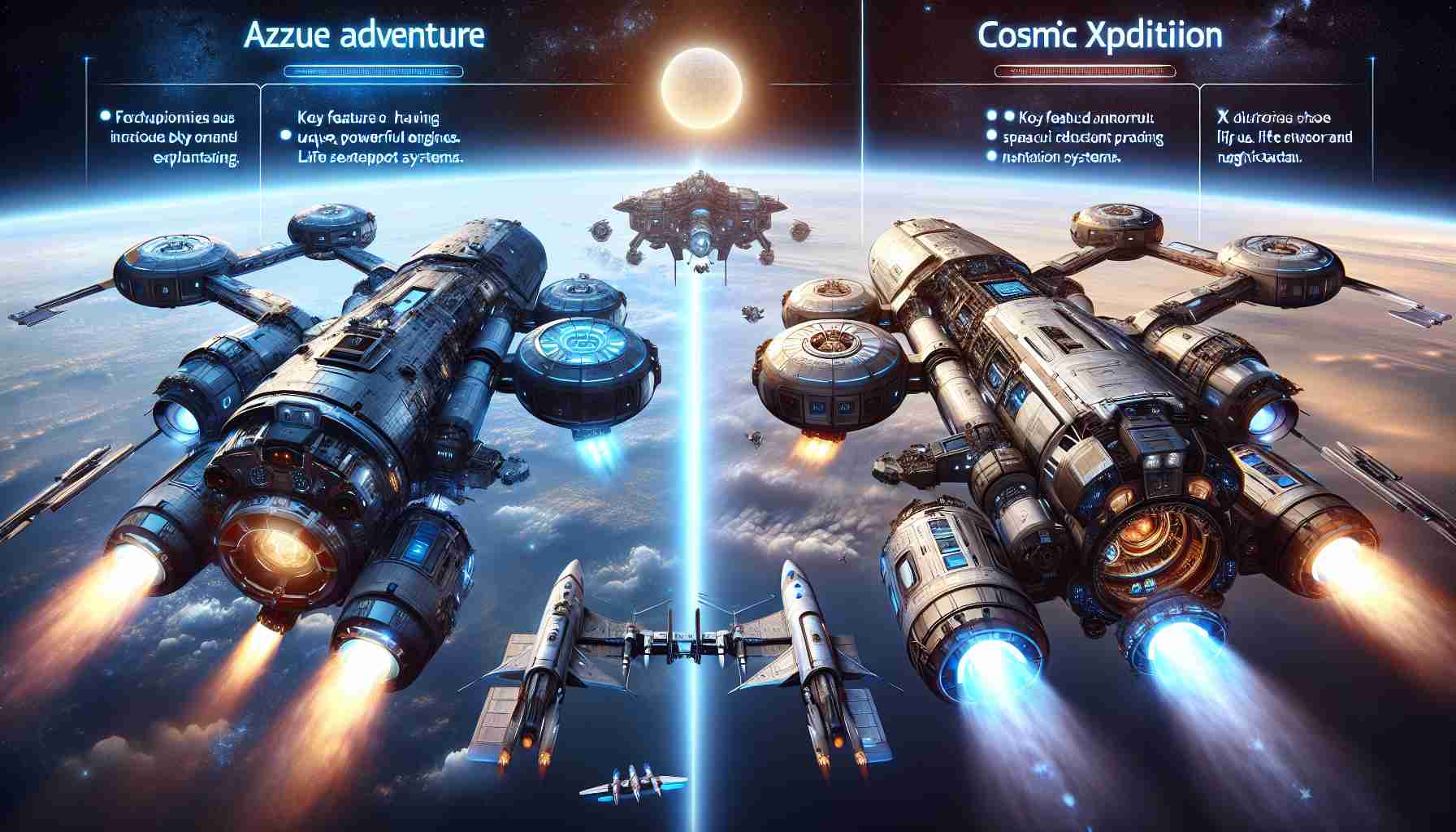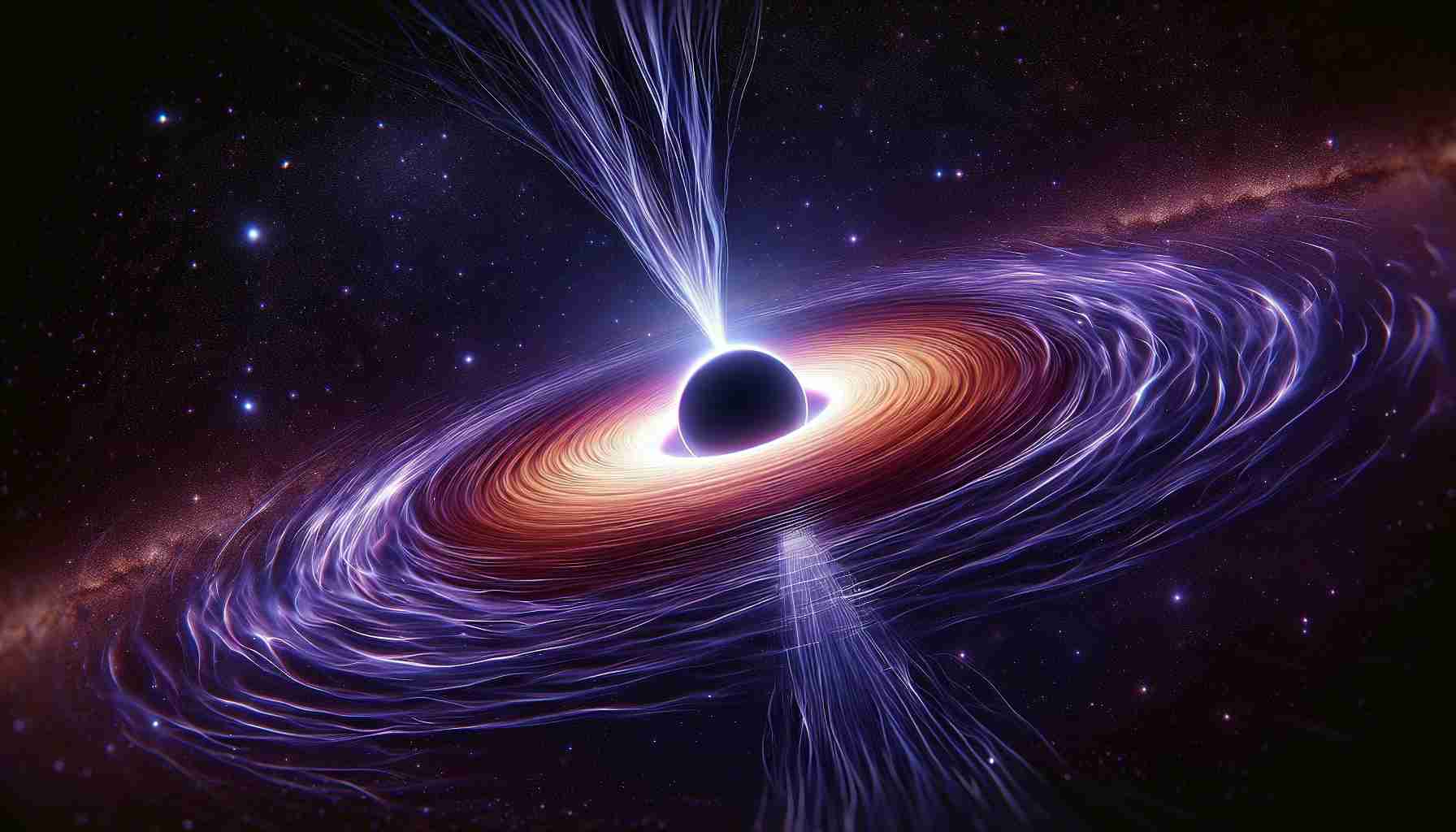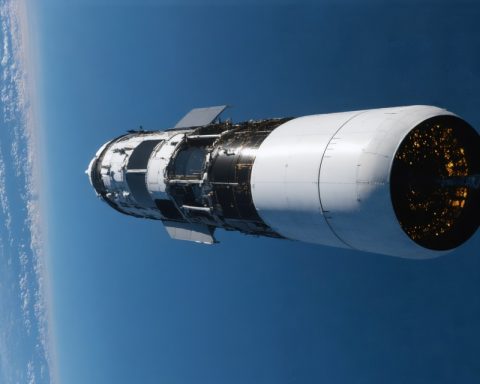- Blue Origin and SpaceX represent two distinct philosophies in space exploration: cautious progress versus rapid experimentation.
- Jeff Bezos’ New Glenn focuses on learning from experience, aiming for fewer flights to achieve booster landings.
- Elon Musk’s Starship-Super Heavy embodies a “fail fast” mindset, embracing risks that result in both innovations and setbacks.
- Both companies utilize iterative design, refining their approaches through testing and failure.
- The competition between Blue Origin and SpaceX may influence the future of space travel and technological innovation.
In the thrilling arena of space exploration, two giants are vying for supremacy—Jeff Bezos’ Blue Origin with its New Glenn rocket and Elon Musk’s SpaceX with the formidable Starship-Super Heavy. Their contrasting philosophies highlight a captivating conflict in the quest for the cosmos.
Bezos’ New Glenn made its debut with a precision-driven launch, embodying Blue Origin’s motto of “step by step, ferociously.” This approach focuses on learning from past mistakes, allowing the company to potentially achieve booster landings in fewer flights than SpaceX did with its Falcon rockets. Despite not landing its booster, New Glenn successfully sent its payload to medium-Earth orbit, inching closer to gaining certification for critical national security missions.
In contrast, Musk’s Starship-Super Heavy aims for rapid innovation and experimentation, embracing a risky playbook that led to its latest launch resulting in debris showering down over the Caribbean after losing contact during ascent. While the Starship’s booster returned intact, the mishap raised questions about Musk’s cavalier attitude toward risk.
Both companies represent the power of iterative design, refining their technologies through trial and error. SpaceX’s audacious “fail fast” philosophy contrasts sharply with Blue Origin’s cautious progression. This competition is a thrilling reminder that our pursuit of the stars, whether through meticulous planning or daring leaps, is shaping the future of human exploration.
The takeaway? As the race heats up, the strategies and outcomes from both Blue Origin and SpaceX may redefine not just space travel, but the very essence of innovation itself. Who do you think will emerge as the leader in this cosmic showdown?
Space Wars: The Race Between Blue Origin and SpaceX Heats Up!
New Developments in the Blue Origin and SpaceX Competition
The ongoing rivalry between Jeff Bezos’ Blue Origin and Elon Musk’s SpaceX is not just about rockets, but also about the broader implications for the future of space exploration, technology innovation, and even sustainability.
Innovations and Features of New Glenn and Starship-Super Heavy
1. New Glenn’s Capacity and Design: New Glenn is designed to carry a payload of up to 45 metric tons to low Earth orbit, thanks to its 7-meter diameter and reusable first stage. Its robust design aims for a life cycle of over 100 launches, greatly reducing costs per launch over time.
2. Starship-Super Heavy’s Versatility: Starship is designed for long-duration missions, capable of carrying up to 100 metric tons to low Earth orbit. Musk’s aspiration includes missions to Mars and beyond, igniting public interest in interplanetary travel.
3. Reusability Initiatives: Both companies are heavily invested in reusable rocket technology, which aims to revolutionize the economics of space flight. Blue Origin is developing refueling techniques to extend the range of its rockets, while SpaceX has already successfully re-used its Falcon 9 boosters multiple times.
Market Trends and Insights
– The space industry is projected to grow significantly, with estimates suggesting a market size of $1 trillion by 2040. This growth will be fueled by advancements in satellite technology, lunar exploration, and the burgeoning field of space tourism.
– Space tourism, particularly through suborbital flights, is expected to become a reality, with Virgin Galactic and Blue Origin leading the charge, while SpaceX focuses on orbital and beyond-orbit missions.
Pros and Cons of Blue Origin and SpaceX
| Pros | Cons |
|—————————|———————————-|
| Blue Origin: Steady, meticulous approach; focus on national security missions. | Can be perceived as slow by some; limited testing schedule compared to SpaceX. |
| SpaceX: Rapid iteration; successful record of launches and landings. | Higher risk-taking; occasional mishaps raise safety concerns. |
Questions and Answers
1. What are the current missions of Blue Origin and SpaceX?
– Blue Origin is primarily focusing on its New Glenn rocket for national security and satellite launches, whereas SpaceX is ramping up its Starship program for deep space missions and has already sent multiple cargo missions to the International Space Station.
2. How do Blue Origin and SpaceX approach innovation differently?
– Blue Origin adopts a cautious, iterative approach which emphasizes learning from each launch through comprehensive data analysis. In contrast, SpaceX employs a more aggressive strategy that encourages rapid testing and development, even at the risk of occasional failures.
3. What is the future of space exploration influenced by these companies?
– The competitive dynamic will influence technological advancements, lower costs for access to space, and potentially even the establishment of a human presence on other celestial bodies, such as the Moon and Mars. Moreover, ongoing innovation may lead to improved sustainability practices within the space industry.
For more in-depth reading on space exploration and technological advancements, visit SpaceX and Blue Origin.
















